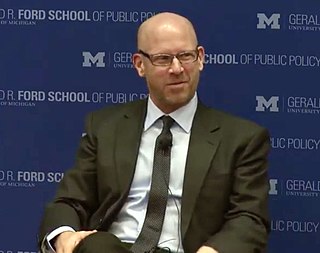A Quote by Dalai Lama
Meditation is valuable for all of humanity because it involves looking inward. People don't have to be religious to look inside themselves more carefully. It is constructive and worthwhile to analyze our emotions, including compassion and our sense of caring, so that we can become more calm and happy.
Related Quotes
The Holy Ghost causes our feelings to be more tender. We feel more charitable and compassionate with each other. We are more calm in our relationships. We have a greater capacity to love each other. People want to be around us because our very countenances radiate the influence of the Spirit. We are more godly in our character. As a result, we become increasingly more sensitive to the promptings of the Holy Ghost and thus able to comprehend spiritual things more clearly.
Ethics cannot be based upon our obligations toward people, but they are complete and natural only when we feel this Reverence for Life and the desire to have compassion for and to help all creatures insofar as it is in our power. I think that this ethic will become more and more recognized because of its great naturalness and because it is the foundation of a true humanism toward which we must strive if our culture is to become truly ethical.
Unfortunately, as a society, we do not teach our children that they need to tend carefully the garden of their minds. Without structure, censorship, or discipline, our thoughts run rampant on automatic. Because we have not learned how to more carefully manage what goes on inside our brains, we remain vulnerable to not only what other people think about us, but also to advertising and/or political manipulation.
Some people say, "Sometimes I have violent thoughts, what can I do?" So I say, "Well, have them!" Cos we should not try to control ourselves. It's very bad to control ourselves in this sense. If you have any emotion at all, if its a bad emotion or good emotion, think about it, you should just understand that you have those emotions. And it's good because we are people and we have all these emotions. And the result of that is you would become more and more peaceful. If you don't let those emotions be inside of you then you become extremely violent.
Common sense! It's nothing more than common sense for the preservation of our culture, the preservation of our country, the preservation and growth of our economy. And yet Jim Acosta and Glenn Thrush - and everybody in the press corps and practically every other Democrat - hears this and the only reaction they have is, "No compassion! No compassion for the less fortunate! No compassion for the victims of the world!"
Nothing helps us build our perspective more than developing compassion for others. Compassion is a sympathetic feeling. It involves the willingness to put yourself in someone else's shoes, to take the focus off yourself and to imagine what it's like to be in someone else's predicament, and simultaneously, to feel love for that person. It's the recognition that other people's problems, their pain and frustrations, are every bit as real as our own-often far worse. In recognizing this fact and trying to offer some assistance, we open our own hearts and greatly enhance our sense of gratitude.
There are so many people who have a training in art history; and if you've spent time looking at old art, you become attuned to what art does through materiality and so you begin to look to that in contemporary art as well. And anyway, I do think that matching one's experience with what you're looking at and questioning what you're looking inevitably involves materiality, just like it involves the sense of place.
There is no denying that consideration of others is worthwhile and that our happiness is inextricably bound up with the happiness of others. There is no denying that if society suffers, we ourselves suffer, and the more our hearts and minds are afflicted with ill-will, the more miserable we become. We can reject religion, ideology, received wisdom, but we cannot escape the need for love and compassion.
We all have families who are longing for peace in the world and an end to the suffering caused by poverty, disease, and hunger. Untold numbers of our friends, our neighbors, our parents, and our children, are hoping that there is more understanding, more generosity, more genuine friendship, and more caring among people of all faiths and cultures.
We notice that the mind is a restless bird; the more it gets the more it wants, and still remains unsatisfied. The more we indulge our passions the more unbridled they become. Our ancestors, therefore, set a limit to our indulgences. They saw that happiness was largely a mental condition. A man is not necessarily happy because he is rich, or unhappy because he is poor.... Millions will always remain poor.
If each of us can learn to relate to each other more out of compassion, with a sense of connection to each other and a deep recognition of our common humanity, and more important, to teach this to our children, I believe that this can go a long way in reducing many of the conflicts and problems that we see today.
I think part of why schizophrenia got linked to civil rights protest in the '60s was because mainstream society was coding threats against the smooth running of the state as insanity and treating it as such, and so as that happens you see the evolution of a process in which people with schizophrenia are increasingly feared and our hospitals, particularly the kind of hospital that I look at in the book become to look more and more like prisons, to the point where many of them including the one I talk about actually become prisons.





































